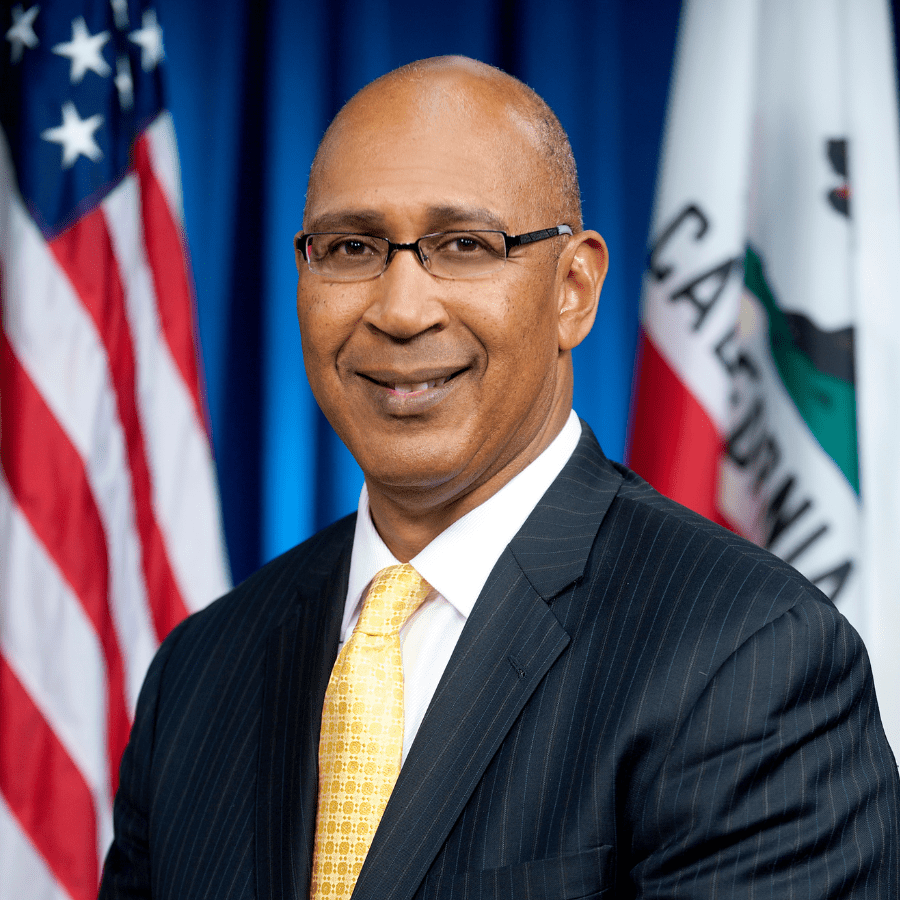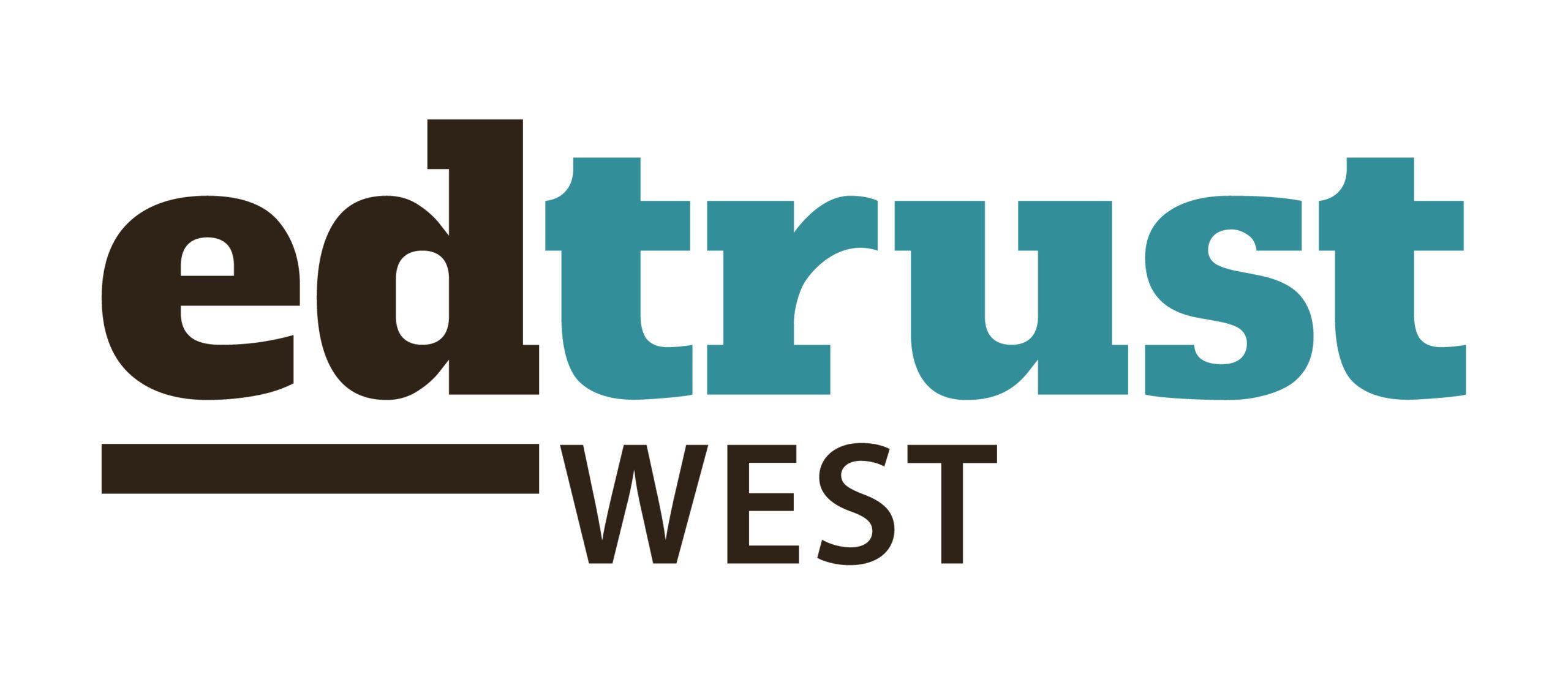Every spring, California legislators offer new ideas or proposed changes to programs and policies that touch the lives of California’s roughly 10 million students, from preschool to K-12 to higher education. Many of these ideas stand to improve opportunity and access for students of color, students from lower-income communities, and English learners – if decision-makers in Sacramento are encouraged to make them a reality.
That’s why each year, The EdTrust-West analyzes proposals for the state budget and new legislation and identifies the top eight greatest opportunities to advance educational equity and justice.
Governor Gavin Newsom’s 2022-2023 state budget includes several of these opportunities. Read our response to Newsom’s budget proposal for an analysis of key funding priorities for moving educational justice forward.
Every spring, California legislators offer new ideas or proposed changes to programs and policies that touch the lives of California’s roughly 10 million students, from preschool to K-12 to higher education. Many of these ideas stand to improve opportunity and access for students of color, students from lower-income communities, and English learners – if decision-makers in Sacramento are encouraged to make them a reality.
That’s why each year, The EdTrust-West analyzes proposals for the state budget and new legislation and identifies the top eight greatest opportunities to advance educational equity and justice.
Governor Gavin Newsom’s 2022-2023 state budget includes several of these opportunities. Read our response to Newsom’s budget proposal for an analysis of key funding priorities for moving educational justice forward.
The Equity 8 for 2022
Last Updated: 10/3/2022


AB 2617 (Holden) and Governor’s Budget Proposal ($500 Million) on Dual Enrollment
In his initial budget proposal, Governor Newsom proposed $500 million for local educational agencies (LEAs) to strengthen and expand access for high school students to participate in dual enrollment opportunities. Dual enrollment allows high school students to take college courses and earn college credit: a powerful way to expand educational opportunities, improve economic mobility, and meet California’s workforce needs. EdTrust-West most recent report, Jumpstart, outlines how dual enrollment can create more college and career pathways between K-12 schools and California Community Colleges while also calling out inequitable access gaps affecting Black, Native, and Latinx students. Governor Newsom’s proposed investment would catalyze a reimagination of dual enrollment and help close racial equity gaps.
AB 2617 (Holden) mirrors much of the Governor’s dual enrollment proposal and includes most of the amendments that EdTrust-West advocated for.
Status: The final state budget for 2022-2023 includes $200 million to expand dual enrollment opportunities. Enacting legislation includes most of the amendments recommended by EdTrust-West. This is a win as many more students will have an opportunity to earn college credit and improve their chances for postsecondary success. Assemblymember Holden dropped AB 2617, which was introduced to inform discussions regarding dual enrollment in the budget.
AB 2565 (Rubio) and Budget Request ($388 Million)
Math/Science Teacher Professional Development – EdTrust-West co-sponsored AB 2565 (Rubio) with the California Association of Science Educators (CASE). This bill would have strengthened K-12 mathematics and science instruction by providing $388 million over three years for professional development for math and science teachers.
California has failed to support low-income students and students of color in achieving high levels in math and science, thus impeding equitable access to higher education. Correspondingly, it has limited opportunities for these students to pursue high-paying jobs in science, technology, engineering, and math-related (STEM) professions.
Status: The final state budget for 2022-2023 includes $85 million for state infrastructure to provide teacher professional development in math, science, and computer science. Although less than the $388 million originally requested, the $85 million will be allocated to the Fresno County Office of Education to work with a consortium of organizations to expand the state’s capacity to provide teacher training and coaching. This was the most important component of AB 2565 and is a major policy win.
AB 1705 (Irwin) to Close Loophole on Developmental Education and Budget Request on Equitable Placement and Completion Support
Placement in remedial education has delayed or ended the educational careers of many low-income students and students of color at California’s community colleges. In 2017, the passage of AB 705 (Irwin) served as a foundational attempt to phase out remedial education in community colleges, but some colleges found a loophole. AB 705 required community colleges to improve a student’s chances of transfer by placing them in transfer-level coursework in English and math within one year. It also required the colleges to use specific metrics in the placement of students. Some community colleges continued to enroll students in remedial education, arguing that AB 705 applied to the placement of students and not to enrollment. AB 1705 clarifies that AB 705 applies to both the placement and enrollment of students in transfer-level coursework.
EdTrust-West also co-sponsored a budget request for one-time funding that would incentivize community colleges to phase out traditional remedial courses and scale up evidence-based alternatives. This could include corequisite courses, which are academic supports that supplement transfer-level courses and leverage high-impact, data-driven strategies proven to provide students with the best chance of successfully completing transfer-level coursework.
Status: The final state budget for 2022-2023 includes an Equitable Placement and Completion Block grant and will provide community colleges with $64 million in one-time funding to support students in completing college-level math and English courses. Governor Newsom signed AB 1705 (Irwin) on September 30, 2022.
AB 1746 (Medina) – Cal Grant Reform
Financial aid for college students has not kept pace with the cost of attendance. AB 1746 (Medina) would reform the Cal Grant program so that state financial aid reaches more students, thereby providing greater financial assistance. This bill would remove barriers such as grade point average (GPA) verification for community college students, apply an automatic inflationary adjustment to basic needs awards for community college students, and align financial eligibility for Cal Grants more closely with Pell Grant methodology. These changes would expand Cal Grant eligibility to 150,000 more California students, including adult learners, student parents, and students of color. AB 1746 is a reintroduction of AB 1456 (Medina), which was vetoed in 2021.
Status: The final state budget for 2022-2023 enacted Cal Grant Reform proposed by AB 1746, but it is contingent upon a finding of adequate revenues in 2024. Assemblymember Medina no longer needed AB 1746, and subsequently dropped the bill.
AB 2774 (Weber) – Adds Lowest-Performing Subgroup to LCFF for Supplemental and Concentration Funds
By law, the funding formula for California’s K-12 schools (known as the Local Control Funding Formula or LCFF) does not take student groups of color into account when calculating additional funding, failing to acknowledge—and exacerbating—the inequities Black students experience in the K-12 school system. In 2019, about 90,000 Black students didn’t factor into calculations for supplemental funding because they are not English learners, foster youth, or low-income students.
AB 2774 (A. Weber) would modify calculations of supplemental funding in the Local Control Funding Formula to also include students in the lowest-performing subgroup or subgroups, excluding those in groups already receiving extra funding from either state or federal sources. “Lowest-performing” would be based on the most recently available mathematics or English language arts results on the California Assessment of Student Performance and Progress. This lowest-performing subgroup would continue to receive supplemental funding until performance meets or exceeds the highest-performing subgroup of pupils in the state.
AB 2774 (A. Weber) is a reintroduction of AB 575 (S. Weber), which was enacted in the 2019 Budget Act in the form of a block grant.
Status: In the final hours of the 2022 legislative session, Governor Newsom asked Assemblymember Weber to hold AB 2774 because it may conflict with Proposition 209, California’s constitutional ban on consideration of race in public education. Assemblymember Weber may ask the Governor to include a proposal in the 2023-2024 state budget to achieve her policy objectives.
AB 2832 (R. Rivas) – Whole Child Community Equity Screening Tool
Currently, California uses poverty levels to determine areas needing investments in early learning and care (ELC). The poverty level is calculated using the number of children aged 0-5 in families with incomes that are 85 percent of the state median income. While income is certainly an important indicator of need, considering compounding factors affecting children can better guide investments in early learning that can help promote equity.
AB 2832 would help alleviate racial and economic inequities by requiring the California Department of Social Services, and the California Department of Education, in consultation with various interested organizations, to develop and implement a broader system to direct ELC funding and resources toward underserved communities. AB 2832 also includes the establishment of the Whole Child Community Equity Screening Tool (WCEST), which would map out the state’s communities with the greatest need for ELC investments based on racial and economic equity gaps. The state would then use WCEST to disburse new state and/or federal funds and resources to those high-need communities.
Status: Governor Newsom signed AB 2832 (R. Rivas) on September 28, 2022.
AB 2806 (Rubio) – Ban on Preschool Suspension and Expulsion
Students who are suspended or expelled from school lose the opportunity to develop critical social, emotional, and academic skills that lay the foundation for future educational success. Preschool children are suspended and expelled at higher rates than K-12 students, and Black and Latinx children, especially boys, are disproportionately impacted by this harmful practice.
AB 2806 (Rubio) would prohibit suspension and expulsion in state preschool and childcare programs and strengthen due process. It would also provide for early childhood mental health consultation in order to (1) support the mental health of teachers, children, and families, (2) buffer the effects of toxic stress and trauma, and (3) provide optimal development and learning for every student.
Status: Governor Newsom signed AB 2806 on September 30, 2022.
AB 1868 (L. Rivas) – Disaggregation of English Learners and Long-Term English Learners
California is home to over 1 million English learners (EL). Of those, 54 percent are long-term ELs (LTELs) or at risk of becoming LTELs. That means American public schools, despite having taught students for six or more years, have failed to help them become proficient in English.
AB 1868 would illuminate the needs of LTEL students by requiring the California Department of Education (CDE) to disaggregate EL student achievement data to understand better how our state, districts, and schools serve ELs, LTELs, and those at risk of becoming LTEL. The disaggregated data would be released annually and provided in a report posted on the CDE website.
Status: Governor Newsom signed AB 1868 (L. Rivas) on September 30, 2022.
